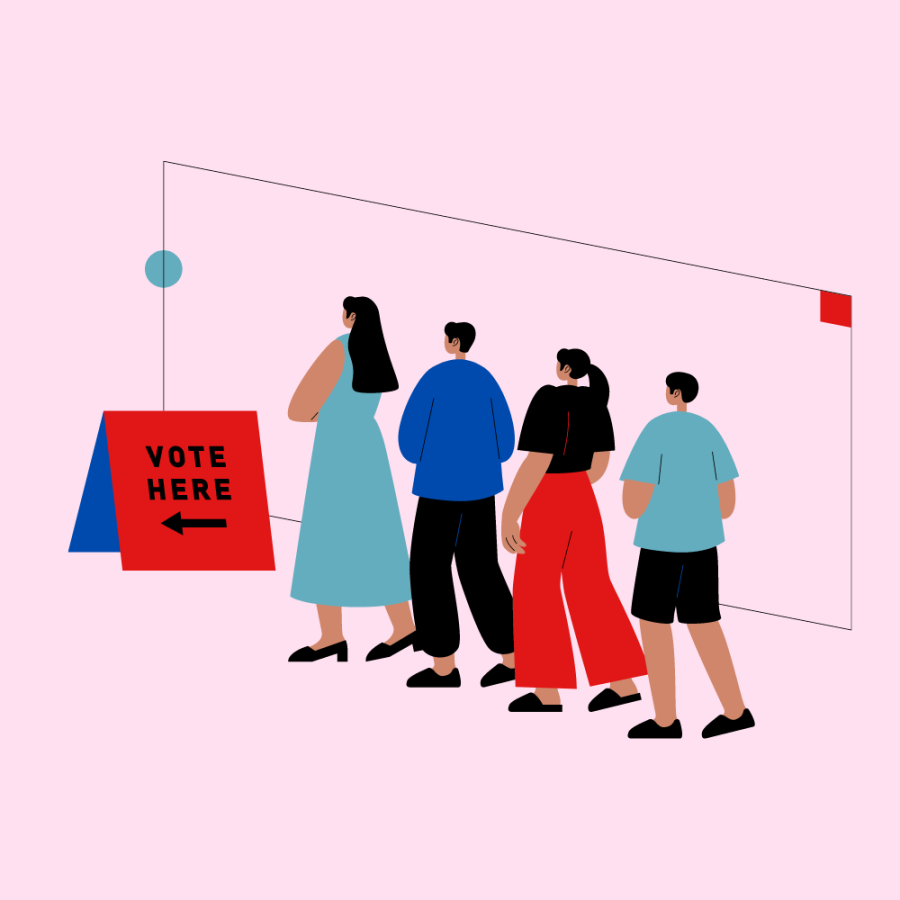Why do young people need to vote?
Used with Permission by Canva/Sketchify Philippines
In the most recent poll for the 2022 South Dakota Gubernatorial election done by Emerson College, only 13.5% of the participants were between 18 and 35 years old. Register to vote now if you are old enough.
Since the passing of the 26th amendment, U.S. citizens as young as 18 years old have had the right to vote. Unfortunately, this right has not been exercised to its fullest extent by young eligible voters, who may not know the importance of their vote.
Voting statistics from past U.S. elections have shown the historically low voter turnout for the youngest generation of voters. According to an article published by Tufts University, voter turnout for those ages 18-29 reached an estimated high of only 50% for the 2020 presidential election. Though this shows a significant increase from the prior election, which had an estimation of 39% of voters ages 18-29, this is still significantly lower than the 76% voter turnout of those ages 65-74, as stated by the U.S. Census Bureau. Voting is an essential aspect of U.S. democracy for every citizen. However, its role is especially important to those who will feel its effects for a more significant portion of their life.
So, why should soon-to-be-adults and young adults care about voting? Why should teenagers start to think about voting? While this may be difficult to accept, if not now then in a few years today’s teenagers will have jobs. They may be in college, in which case they will most likely also have mountains of student debt that will have to be paid off at some point. Insurance and taxes will become issues that must be dealt with. All of these are stressful but inevitable aspects of being an adult, all of which can be affected by policy changes from the results of elections. Even if they do not have to be tackled presently, they can not be avoided in the future. In this sense, teenagers and young adults should help their future selves by voting on policies and for candidates that may make their or their friends and family’s lives less stressful.
While older generations did take significant steps in the journey toward equality for all in America, we still have a long way to go. There are still obstacles that make it harder for minorities to have equal opportunities and treatment. There is still a wage gap for female employees. There are still places that exclude or mistreat members of the LGBTQIA+ community. We need to continue to strive for equality in the U.S. through policy changes. Not only is equality still an issue but so is environmental regulation. While past generations did succeed in making our economy prosperous, they did more harm than good when it comes to protecting the environment. The need for environmental protection programs and regulations will continue to grow if public policy continues in the same direction. In short, whether you like it or not, the time is going to come when these problems that you rarely come in contact with are going to make themselves known in your life. If you want to do your future self and the future generations a favor, you will start to invest some attention in politics. If for whatever reason you are unable to vote, at least spend some time learning about today’s issues so that you will have the necessary knowledge to make educated decisions when you can vote.
If you are eligible and registered to vote, you can do so at your county courthouse today, Nov. 7 or at your designated polling place from 7 a.m. to 7 p.m. tomorrow on election day, Tuesday, Nov. 8. To find your polling place, go to https://sdsos.gov/elections-voting/default.aspx.

Clare Heupel is a senior, second-year staff member and perspectives editor for the Statesman. Other than writing and editing stories, at school Heupel...



Daniel Bethke • Nov 7, 2022 at 4:59 pm
Good stuff and I love the first source (no bias for me there ofc). Reminds me of a saying: regardless of whether you do politics, politics is gonna do you